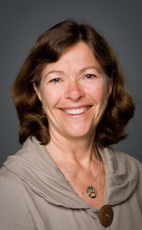Mr. Speaker, this is the first full speech I have given in the House, so I want to recognize the constituents of Nanaimo--Cowichan for sending me back to the House for a second time.
I am pleased today to speak about the accountability bill. Bill C-2 is an important opportunity for parliamentarians to have a full debate around the importance of openness and transparency in government. Canadians have been calling for accountability in light of the shenanigans over the last couple of years. They want parliamentarians to be responsible to the Canadian public.
There are a couple of aspects of the proposed legislation to which I would like to specifically speak.
We have heard a great deal about democratic accountability for members of Parliament. We have heard a great deal of sound and fury around the Vancouver Kingsway member, who shortly after an election chose to go from one side of the House to the other. Whether it was the actual physical walking from one side of the House to the other, or whether it was the virtual crossing, does not matter. What matters is the fact that the member chose to run for one party and sit as a member of another. One would ask whether it would seem fair and reasonable for his constituents, who work and live there and who pay taxes, to have a say on that. I would encourage members to look at supporting an amendment that would ban floor crossing the House.
The second matter in the accountability bill that I specifically would like speak to is electoral reform. In the last sitting of the House, the former member for Ottawa Centre, Ed Broadbent, put forward a proposal to the government of the day, suggesting a format for parliamentarians and the public at large to consider electoral reform, specifically proportional representation. Five provinces in Canada are in various stages of considering proportional representation. This would seem like an opportune time for the House to consider demonstrating some leadership by examining in detail and with meaning electoral reform. I noticed there was a glancing mention in the throne speech around it, but I would encourage us to move quickly in implementing some steps toward having Parliament and the Canadian public engage in a dialogue and some planning around electoral reform.
Many Canadians no longer vote, and that is a major concern for us in the democratic process. It is important for Canadians to feel that their votes count. Canada is one of the few western democratic countries left that still relies on a first past the post system. The House is a good example where somebody can only have 35%, give or take, as a percentage of the vote and yet form government. Many Canadians do not feel this is an adequate representation of their vote. I would encourage the House to develop a strategy around electoral reform.
We often talk about accountability. Earlier today in the House we were talked about people from Garden Hill. The chief and some of his council are here today talking to parliamentarians about the fact that their community has been hit with a second outbreak of tuberculosis in two years. It took eight months to diagnose the first case. There has not been the kind of assistance they need to help them deal with this problem. They are pleading for parliamentarians to pay some attention to the desperate situation in their community.
One might wonder how that relates to accountability. It relates to accountability because one of the reasons for an outbreak of tuberculosis is due to poverty and inadequate housing. Numerous studies have been done in Canada which have talked about the dire conditions on many first nations reserves with respect to their housing situations, yet we still do not have an adequate remedy.
Just to refresh the memory of the House, in the Auditor General's report of April 2003 under Appendix A, she listed numerous studies which have been done that talk about the conditions in first nations communities and the recommendations that have been made to remedy that situation. This goes back in recent memory to 1983 and the special committee on Indian self-government, also known as the Penner report; in 1985, the task force on program review; in 1990, the Standing Committee on Aboriginal Affairs; in 1991, the Office of the Auditor General; in 1992, the Standing Committee on Aboriginal Affairs; in 1993, the Office of the Auditor General; in 1996, the report of the Royal Commission on Aboriginal Peoples; and in 1998, Gathering Strength: Canada's Aboriginal Action Plan.
A litany of Conservatives and Liberals have failed to act in a meaningful way on housing on reserve. Now for the people who live in that community there is the third world outbreak of tuberculosis which is directly attributable to lack of adequate housing. On top of that, only 4% of this community of 3,500 has running water.
We must go beyond talking about accountability in terms of making parliamentarians accountable for how money is spent. We must be accountable to the Canadian people to make sure that first nations and aboriginal peoples have access to clean water, access to safe, clean affordable housing and that they get the health care that is their right in this day and age.
When we are talking about accountability, I firmly believe we need to expand that conversation beyond talking about parliamentarians and how they spend their money.

